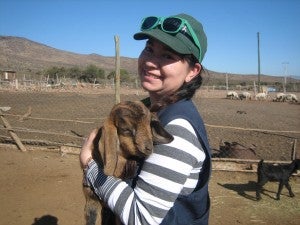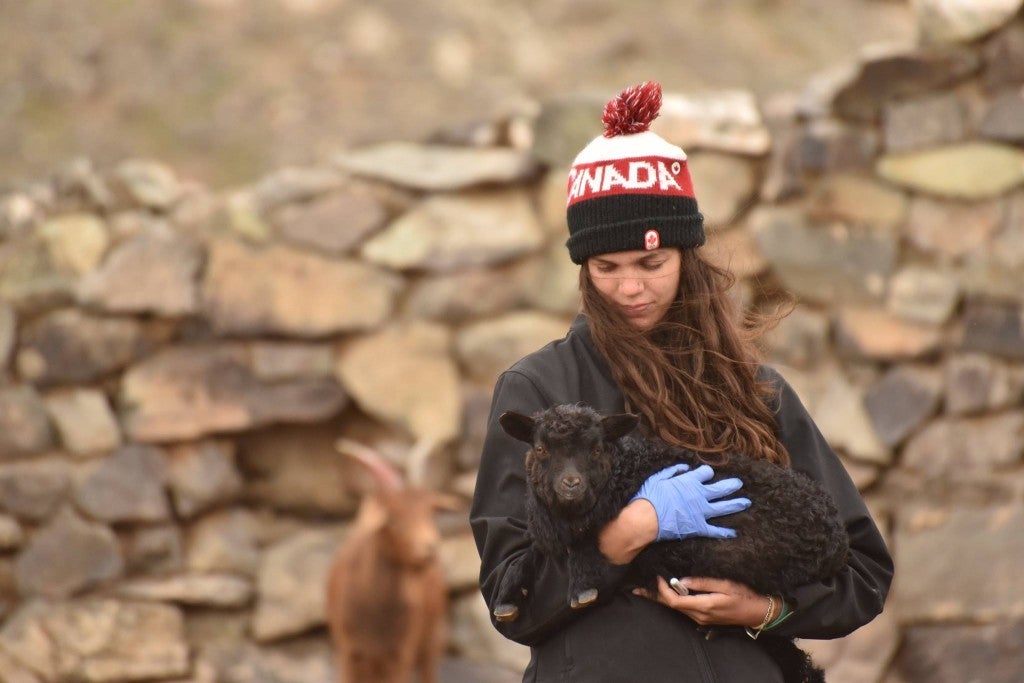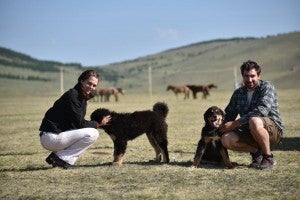Contributed by Marlene Belmar, Class of 2018
Photos courtesy of Dr. Gerardo Acosta
My life long career goal within veterinary medicine is to specialize in epidemiology and apply my knowledge and skills towards a better understanding of zoonotic diseases. This past summer, I had a wonderful opportunity to go to Chile to participate in a research project entitled “Control and Prevention of Hydatidosis/Echinococcosis in the communes of Punitaqui, Monte Patria and Combarbalá within the province of Limarí in the region of Coquimbo,” under the mentorship of Dr. Gerardo Acosta-Jamett.
Hydatidosis is a zoonotic disease of high public health concern within Chile, where dogs are the intermediate host and herbivores and humans are the definitive host. Studies evaluating risk factors associated with the presence of E. granulosus in dog feces have only been initiated recently. Having the opportunity to participate in a project that is striving to improve the lives of people and animals in underserved areas of Chile sparked all of my interests. Continue reading



